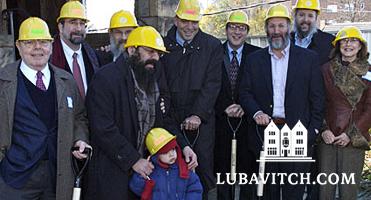It took a tragedy as heart-wrenching as Dorothy Schwadron’s, but someone’s finally listening.
In December of 2005, Rabbi Moshe Mayir Vogel, director of the Aleph Institute of the North East Region, received a call from the Polk State Hospital. Would he arrange for the burial of one of their patients?
He did. Besides the mortician, no one else was there for the 95 year old woman. As in death, so in her life, Vogel learned, Dorothy was utterly deserted.
Today, her tragic story became the impetus for the Dorothy Program, established to locate Jewish patients in long term medical facilities so that none end up like Dorothy. “We cannot allow another Jewish individual to live and die as Dorothy did,” says Rabbi Vogel.
In 1917, at seven years of age, Dorothy was admitted to Polk, then known as Western Pennsylvania Institute for the Feeble Minded. From hospital records, Vogel learned that Dorothy was mildly retarded. “Today, a child with the mental handicap of Dorothy’s nature would never be placed in a mental institution,” Rabbi Vogel offers. But with another baby to care for after Dorothy, and circumstances being what they were back then, her parents were advised to put her away. So Dorothy became a ward of the state.
In 1918, Dorothy had a visit from her parents.
Her next visitor would come 82 years later. In December 2000, when a nephew learned that the aunt he was told was dead, was in fact alive at Polk State Hospital, he came to see her. By then, Dorothy could no longer speak. He mentioned her mother, her father. Dorothy squeezed his hand in response.
Aleph Institute, the leading Jewish advocacy and outreach agency for the incarcerated and their families, broke ground yesterday on a new building for its northeast region. The new building will allow Aleph NE the space it needs for its expanding programs and services that reach a confined, neglected population.
The Dorothy Program will identify long term patients, until now completely excluded from the Jewish community, and draw them into a safety net that concerns itself with their needs, including the quality of medical care they are receiving. Locating the patients is not an easy task, made harder with patients dispersed in group homes and other facilities since the 1980s, when the Reagan Administration cut federal spending on state hospitals, explains Rabbi Vogel.
Aleph’s volunteers, trained to engage these marginalized individuals, remember them with gifts and celebrations on their birthdays, and invite them to participate at Jewish holiday festivities—the Seder table, Chanukah menorah lighting, Purim gift exchanges, and other events intended to surround them with a sense of family and belonging.
The new facility dedicates its main floor to four weekly support groups for families and children of inmates. Aleph NE’s 35 rabbis see about 1,000 Jewish inmates incarcerated in Federal Prisons in the northeast region, as well as all the prisons in Pennsylvania, West Virginia, Ohio and Eastern Maryland. As a recognized agency, federal, state and local counties have also agreed to train Aleph’s rabbis and volunteers at the new facility. Among its programs, which include working with courts for alternatives to incarceration, Aleph also provides rehabilitation services, housing and job placement to help inmates reintegrate once they are released from prison.
Aleph NE, now in its 16th year, is an affiliate of the Aleph Institute, established 25 years ago at the behest of the Lubavitcher Rebbe, Rabbi Menachem M. Schneerson, of blessed memory. The new facility was made possible through contributions by The Morris Foundation, and Mr. Alvin Rogal, said Rabbi Vogel.

Be the first to write a comment.